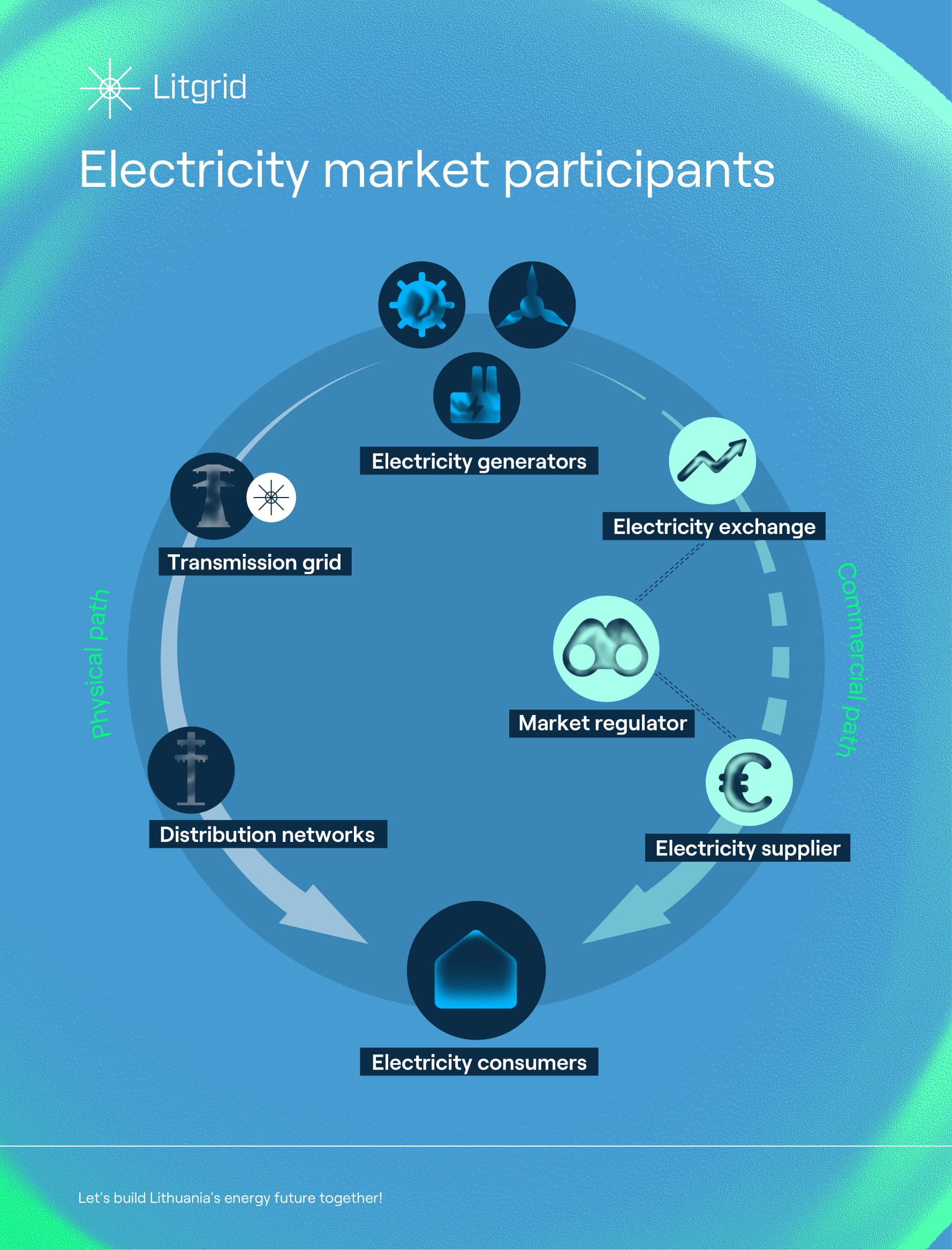

Electricity producers
Electricity producers are power-generating companies which compete in the wholesale market and sell electricity to suppliers in the electricity exchange or under bilateral agreements concluded in advance.
Transmission grid
Electricity is transmitted via the transmission grid and distribution grids from the generation source to the customers. The “postal stamp principle“ applies in Lithuania, meaning that the price for the transmission service is the same irrespective of the customer‘s location. This creates equal conditions for all customers to use the electricity infrastructure.
Distribution grids
Lithuanian distribution network operator Lesto distributes electricity to the end-users, ensures connection of new consumers to the distribution network, operates, maintains, manages and develops the low-voltage distribution network.
Electricity customers
Electricity customers are the users of electricity for domestic or commercial purposes. Customers settle up with suppliers for the electricity consumed and pay for the distribution service to the transmission/distribution system operator depending on the grid to which the customer is connected.
Suppliers of electricity
Suppliers of electricity are legal persons holding licences to supply electricity; they compete among themselves and buy electricity in the wholesale market in order to sell it to customers.
Electricity exchange
Trading in electricity takes place on the electricity exchange, where electricity producers and suppliers conclude purchase and sale transactions. The price in the electricity exchange is formed by the demand and supply balance; thus a transparent wholesale electricity price is ensured.
Regulator
Regulator is an independent institution which exercises supervision over market participants, ensures competitive environment, and sets regulated tariffs for customers.



